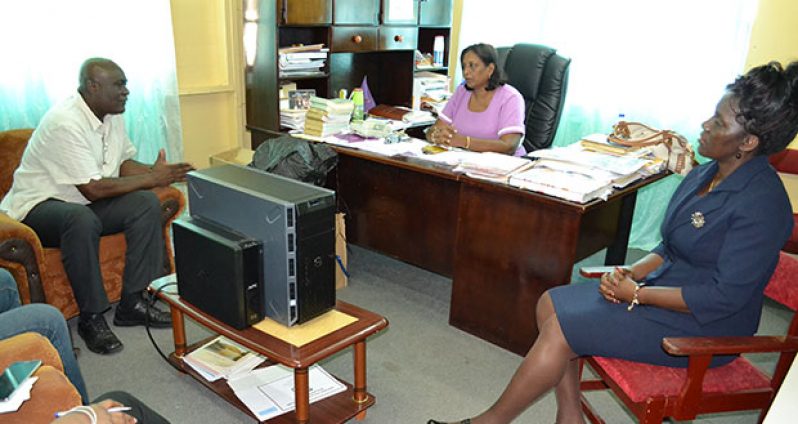THE eGovernment Agency has completed the first phase of the Improving Digital Equity, Access and Learning (IDEAL) Programme, which provided for 100 institutions to be connected to the eGovernment network along the Coast.

This was stated by Chief Executive Officer of the eGovernment Agency, Floyd Levi on Tuesday during a visit to Pomeroon-Supanaam (Region Two) where the Agency conducted assessments at the 11 institutions which benefitted from the initiative in that Region.
To this end, the CEO said that the Agency is now embarking on the second phase of this project.
IDEAL, according to a statement from the agency, includes the provision of a database for the creation of an interconnected e-government network within Ministries and their related agencies across the country. It also provides for the creation of ICT Hubs, within communities and the now completed educational institutions.
The first phase of IDEAL was the Secondary Schools Internet Connectivity Project, and this included the installation of free WiFi Services in educational institutions in Pomeroon-Supenaam (Region Two), Essequibo Islands-West Demerara (Region Three), Demerara Mahaica (Region Four), Mahaica-Berbice (Region Five) and East Berbice-Corentyne (Region Six).
The installation of these institutions began in August and took approximately one month to complete.
According to the statement, during the visit on Tuesday, officials met with the Regional Education Officer Baramdai Seepersaud, who said that based on interactions with several of the schools, the service has since been working extremely well and will certainly aid in research and access to information.
The agency reported too that the trip also allowed for further recommendations to be made as to the expansion of phase one of the project in the Region.
Visits were made to Abram Zuil Secondary School, Anna Regina Multilateral Secondary School, Charity Secondary School, Cotton Field Secondary School, Johanna Cecelia Secondary School, Aurora Secondary School, Essequibo Technical Institute, the Region Two Regional Education Office (REDO), Eight of May Secondary School, Cyril Potter College of Education and New Opportunity Corps (NOC).
Also, during a visit to the New Opportunity Corps (NOC), the Agency was able to commit to the provision of 15 computer systems for the institution’s Information Technology Laboratory.
Here, the CEO said that the Agency will seek to fill the gap created by a shortage of teachers to provide training for the juvenile-residents at the NOC. He said too that just like other students, the juveniles at the NOC deserve an equal opportunity.
“These students need life skills that can serve them well in the future and these things form very much a part of their future. So they have to be prepared that when they leave here they can integrate well into society and can lead meaningful and productive lives.”
Meanwhile, the second phase of the IDEAL Programme includes the establishment of Community ICT Hubs, which will also see the provision of free internet services within identified communities.
In addition, the agency said that this project also involves; meeting with key stakeholders to identify communities and meeting with the community members; the installation of systems in identified locations that are accessible by all community members; and engaging with the private sector collaborations for the equipping and furnishing of hubs, where needed.
To this end, Levi said that following meetings with the Regional Administration, several villages have been identified for the implementation of this project. These include; Dartmouth, Lima Sans, Good Success, Charity and Aurora.
Also, during consultations with the Regional Executive Officer of Region Two, Mr. Rupert Hopkinson, the Agency was able to secure space at the Regional Office in Anna Regina, where it set up a permanent location so as to monitor the eGovernment services in the Region.




.png)









